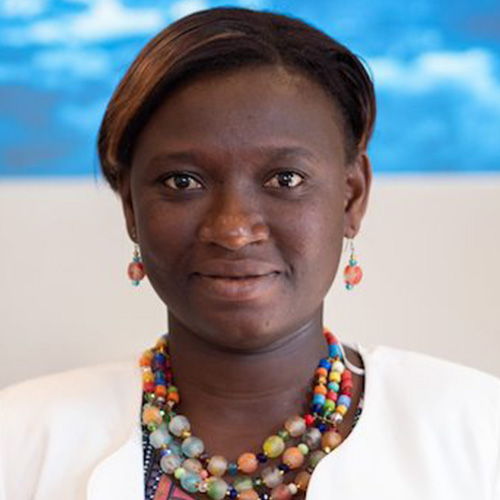
N’Datchoh Evelyne Toure
Country (Nationality)
Cote D'ivoire
Grantee Title
Flood Risk Reduction under Paris Agreement (FLORR-PA)
Grantee Description
Toure is a climate scientist at the Laboratory of Atmospheric Physics of the University Felix Houphouet-Boigny (UFHB) of Abidjan, Cote d’Ivoire. She completed her PhD in 2015 from Federal University of Technology Akure (FUTA) with a thesis titled “West African aerosols and their impacts on regional climate” within the framework of WASCAL and ICTP STEP scholarships. She earned a postdoctoral position in Laboratoire d’Aerologie of Toulouse where her work consisted of climate modeling and investigating uncertainties in African biomass inventories and atmospheric pollution impact on Human health. N’Datchoh’s area of interest covers from aerosols and their impacts, to climate change and extreme events. She has presented her findings at numerous workshops and conferences and done a dozen of peer-review articles published in international climate journals.
Project
This project Flood Risk Reduction under Paris Agreement (FLORR-PA) aims to provide valuable information about projected flood occurrences in three West African cities of Abidjan (Cote d’Ivoire), Dakar (Senegal) and Ouagadougou (Burkina Faso) under global warming target of 1.5oC and 2oC along with pre- and post-disaster strategies to mitigate and manage the risk. The current highest death toll, losses and damages is still hitting these cities and are associated with global warming amplification despite efforts of providing robust information on climate extremes and hazards occurrences. Also, past climate hazards characterization may allow generating information about their future occurrences. Therefore this project results will provide a catalog of the extreme precipitation events and the related flood hazards and disasters; a wiki list of key indicators for flood occurrences in the three cities; multi-model ensemble-based climate change information for flood occurrences highlighting most vulnerable areas under 1.5o C and 2oC global warming and report on best practices and barriers for an efficient pre- and post-disaster management and reduction.
